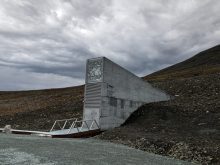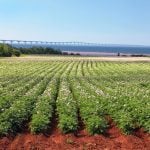Rabat | Reuters—Crop Trust, which works to preserve crop bio-diversity, needs to more than double its $300 million endowment fund to be able to support seed banks across the world, Executive Director Stefan Schmitz said.
The non-profit organization jointly operates the Svalbard Global Seed Vault with Norwegian authorities and offers financial and technical support to smaller seed banks, also known as gene banks, in collecting, preserving and breeding crop varieties.
Amid a surge in conflicts and adverse impacts of climate change “there is an absolutely great sense of urgency to make sure that the entire gene pool of crops is conserved,” Schmitz told Reuters.
Read Also

U.S. grains: Soybean futures rise on active Chinese buying
Chicago | Reuters – U.S. soybean futures edged higher on Friday on increased Chinese demand for American supplies. Wheat and…
Speaking on the sidelines of an International Center for Agricultural Research in Dry Areas (ICARDA) conference, in Rabat, Morocco, he said increased funding would enable Crop Trust to fully fund ICARDA’s gene banks.
The centre made the first seed withdrawal from the Svalbard vault in 2015, after the Syrian war disrupted the operation of a gene bank in Aleppo.
The surge in conflicts stresses “the urgency to have the global biodiversity preserved in order for mankind to continue to have access to what they need to sustain life on earth,” ICARDA’s director general Aly Abousabaa said.
Extreme environmental events, such as this week’s torrential rains in Dubai, “have literally washed some of the experiments we had on the ground,” he said.
ICARDA operates in 16 dry countries, of which 50 per cent facing conflict. It draws on old crop varieties to breed seeds that are resilient to harsh climates.
In Morocco, the centre’s researchers led the development of strains of drought-resisting wheat varieties that “have done extremely well at 200mml of rain, compared to what you would normally receive at between 350mml and 400mml of rain,” Abousobaa said.
“We have not yet fully exploited the capacity of science,” he said, urging steady funding “because science cannot afford the ups and downs”.














